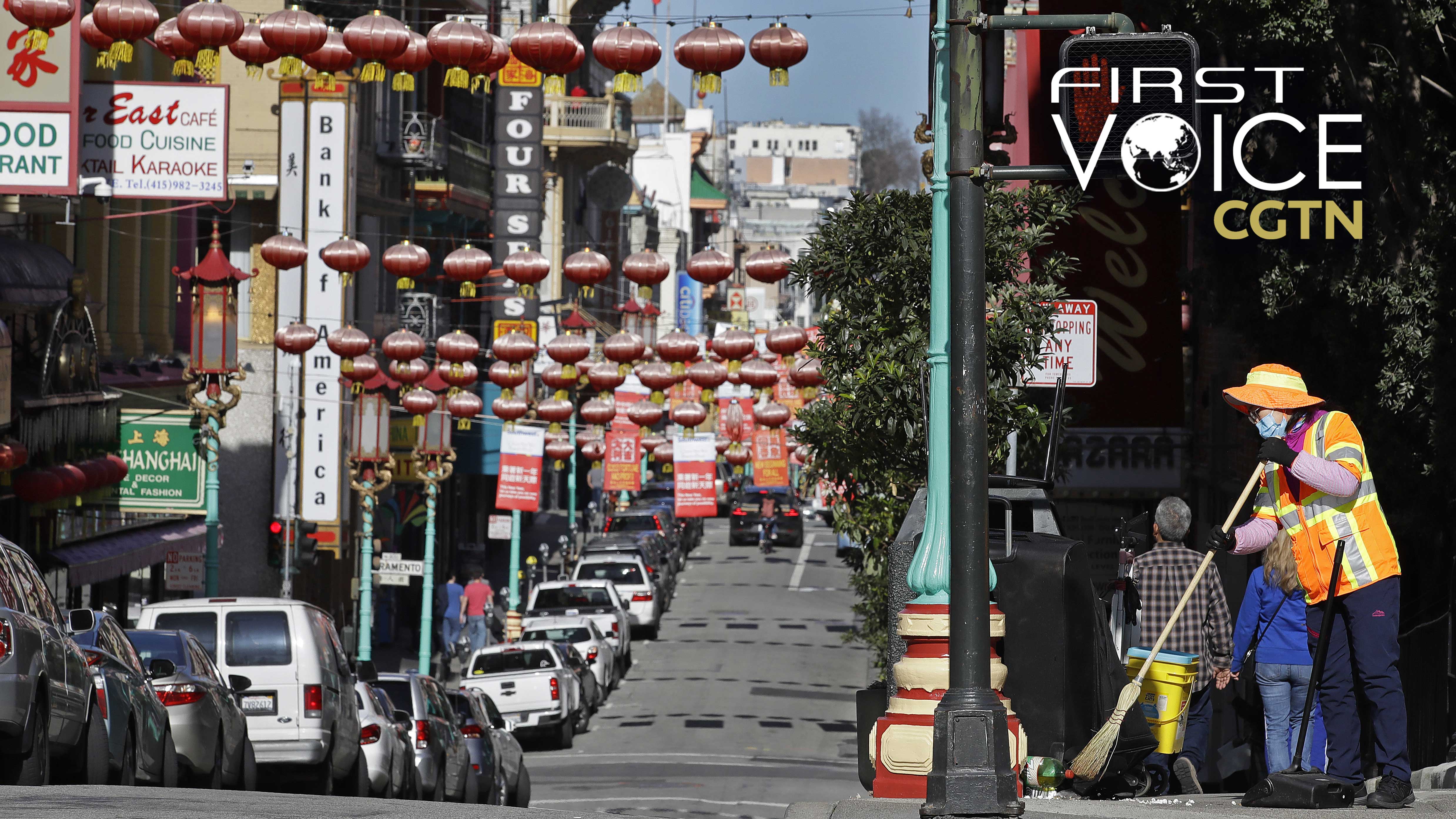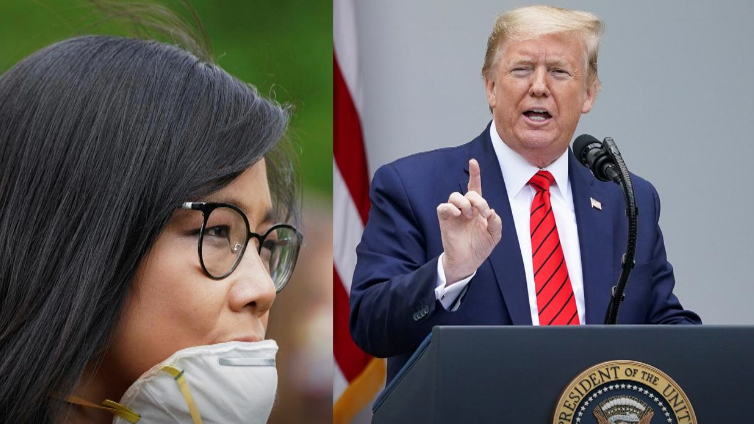
Editor's note: CGTN's First Voice provides instant commentary on breaking stories. The daily column clarifies emerging issues and better defines the news agenda, offering a Chinese perspective on the latest global events.
If there's a single cohort that benefits from the current global pandemic, it'll be anti-China nationalists in the West.
Recently, a right-wing conservative think tank called the Henry Jackson Society published two reports titled "Breaking the China Supply Chain" and "defending our data." The reports called on UK and the world to stop allowing China's 5G technology – led by Huawei – to further develop in their countries and for the 'five-eyes' countries to decouple from China to regain strategic independence.
This is neither the first nor would be the last that this think tank has released statements or reports urging the Western world to take an aggressive stance towards China. In April the Henry Jackson Society claimed that the international community should see trillions of dollars from China for compensation. But despite its recent obsession with taking on China, it has already been pointed out in the article "Post-Brexit mindset behind coronavirus compensation" that the ex-founding member of the think tank admitted that the organization "are devoid of China and Asia specialists and have no deep scholarly experience and expertise in the field of China and Asia more generally."
But, the world we are currently living in is one that lack of experience isn't a disqualifier. The leading China critics in the U.S., the likes of former UN ambassador Nikki Haley and Marco Rubio, have all had little to no experience in dealing with China before abruptly becoming chief China critics. For those who aspire to greater political influences or high offices, attacking China has become one of the most expedient way to gain public's attention, especially under the current political climate when the public is scared and U.S. presidential election is coming up.
However, to say that pure political ambition is driving the anti-China sentiment could be parochial. If one reads these political or scholar pieces, one would find the following words to keep appearing: the responsible stakeholder. When the former U.S. Deputy Secretary of State Robert Zeollick coined the term in 2005, perhaps he hasn't imagined that it'd become such a popular political phrase at the height of China-U.S. conflict. The fundamental notion that as the West brings China into the international community and opens up economically would "democratize" China lies at the root of the term, but is getting hyper-politicized today.

COVID-19 and Nationalism have caused chain reactions throughout the world. This is a screenshot combo of U.S. President Donald Trump lashing out at a Chinese-American journalist Weijia Jiang during a press briefing in the Rose Garden of the White House, in Washington, D.C., U.S., May 11, 2020.
COVID-19 and Nationalism have caused chain reactions throughout the world. This is a screenshot combo of U.S. President Donald Trump lashing out at a Chinese-American journalist Weijia Jiang during a press briefing in the Rose Garden of the White House, in Washington, D.C., U.S., May 11, 2020.
Now, many in the West see that "democratization" has failed because China's not becoming like one of them. Well, it wouldn't be too strong to assert that as a civilization with 5000 years of history and has been thriving for decades with its own political structure, becoming one of them isn't necessarily on China's agenda, or for that matter, serves China's interest. Just take COVID-19 as an example. There's a fundamental cultural and value difference between China and the Western world. As the virus spreads, it became almost an instinct for Chinese people to put on a face mask and maintain social distance. In the U.S. and some other countries, well, face masks invite discriminatory and violent behaviors and the order to stay-at-home is met with protests and disdain.
The fundamental differences between China and the West are now complicated by the rise of nationalists that see China has become too big to tolerate. The Henry Jackson Society's entire report is predicated on the fact that the 'five-eyes' countries are too dependent on China for critical defense infrastructure, and that a decoupling would somehow restore the integrity of their national defense. The report specifically mentioned pharmaceutical as an example and criticized China for conducting "mask diplomacy," saying that such "dependency" could be weaponized. And Huawei's development has for some time now become a national security taboo in the West.
Besides the fact that the world has been warned for a long time by epidemiologists and prominent philanthropists like Bill Gates to prepare for potential pandemic and that Huawei is operating in more than 170 countries, the nationalist sentiment has hampered some countries' ability to proceed with proper governance. The Guardian reports that the Trump administration has requested up to 20 percent funding cuts to the U.S. Centers for Disease Control and Prevention and Control each year, only to be rebuffed by Congress and now met with an inability to control a pandemic that U.S. learns about months before it appeared on its shores. And now, the administration is embroiled in an internal battle with the government's independent watchdog group, with the administration firing inspectors general while the Democrats seizing the moment to attack the president.
China and the West have fundamental differences, no one's denying that. For the past decades, the two sides have been able to manage the differences and work on common ground. It'd be a shame if the relationship continues in a downward spiral because of the rise of a particular political ideology. Nationalists will eventually pass. When that happens, we wouldn't want to look back a regret all the chances we've missed at making progress and prospering together.
Scriptwriter: Huang Jiyuan
(If you want to contribute and have specific expertise, please contact us at opinions@cgtn.com.)